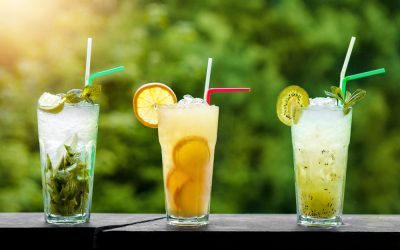The Angry Drunk: How Alcohol and Aggression Are Linked
Table 2 displays demographic characteristics for the sample as a whole and separately by treatment condition. The existence of an angry “crazy drunk person” is often featured in TV shows and movies because of the rising drama and alcohol depression and anger action they bring to an entertaining storyline. These programs organize your treatment session based on your schedule. The goal of outpatient treatment is to provide therapy, education, and support in a flexible environment.
In the study, nearly 500 participants completed a questionnaire about their inclination to consider future outcomes. Afterward, they either drank an alcoholic beverage (orange juice mixed with alcohol) or a placebo (the same concoction but with minimal alcohol). “Later on in the night, you may find someone crying or becoming overly emotional, and this is because, as the alcohol wears off, there is a big drop in serotonin below baseline,” Tietz explains.
Alcohol, Aggression, and Violence: From Public Health to Neuroscience
One study found that chronic alcohol use decreases the function in the prefrontal cortex, which plays a key role in impulse control. Researchers have also linked impulsive alcohol-related behavior to genetic involvement, with the presence of the serotonin 2B receptor gene (HTR2B) playing a role in impulsive and aggressive behaviors while under the influence of alcohol. Beyond just the chemical reaction that alcohol has on the brain, there is also the psychological impact as well. Some people drink alcohol as a way to self-medicate, whether it be for a physical ailment or a mental one.

The tendency to avoid looking ahead and assessing consequences for one’s actions is a risk factor for aggressive behavior while drinking. That may sound obvious, and it’s a theory backed by a small, interesting 2012 study from Ohio State University (9). According to research compiled by the National Institute on Drug Abuse, alcohol use is a considerable contributing factor to sexual assault. Similarly, in nearly 40% of violent incidents, surveyed individuals from the United Kingdom said they believed their perpetrator was under the influence of alcohol. While drinking alcohol isn’t the sole reason for assault, it plays a substantial role in whether someone commits a violent crime.
Ways Alcohol Facilitates Anger, Aggression and Violence
By Buddy T
Buddy T is a writer and founding member of the Online Al-Anon Outreach Committee with decades of experience writing about alcoholism. Because he is a member of a support group that stresses the importance of anonymity at the public level, he does not use his photograph or his real name on this website. Anger is an intense emotion you feel when something has gone wrong or someone has wronged you. Aggression refers to a range of behaviors that can result in both physical and psychological harm to yourself, others, or objects in the environment.
Intimate partner violence refers to behavior between partners that causes physical, sexual, or psychological harm to one or both partners in the relationship. People who are more focused on the here-and-now tend to act more aggressively when they drink alcohol than those who think more carefully about the consequences of their actions. Alcohol has the tendency to enhance whatever emotions you’re feeling when you imbibe. One of the defining symptoms of alcohol use is lowered inhibitions, and those lowered inhibitions can become dangerous and volatile when a person has anger seething beneath the surface. What this means is, we often use anger as a shield to protect us from feeling the vulnerability of other emotions, such as fear, rejection, frustration, pain, and humiliation.
Potential Effects of Alcohol-Related Aggression
This research was supported by a National Institute on Alcohol Abuse and Alcoholism at the National Institutes of Health grant (R01 AA17603) to the first author. The NIAAA and NIH had no further role in study design, in the collection, analysis and interpretation of the data; in the writing of the report, or in the decision to submit the paper for publication. The views herein do not necessarily represent the official views of the NIAAA or the NIH. For both sets of analyses, mixed effects models (SAS 9.3) were used. This allowed us to model clients as random factors and to nest repeated measures within each client.

When it comes to anger specifically, people may experience a phenomenon called “alcohol myopia” in addition to their already heightened emotions. This scenario involves losing your sense of perception under the influence. As a result, you may be overly aggressive during a situation where you’d otherwise notice the cues that tell you to think more rationally. Alcohol use and anger can both be treated using psychotherapy approaches rooted in cognitive behavioral therapy (CBT).
The impact of alcohol-related violence
The treatment should target both the person’s mental health and substance use disorder as two parts of a whole. Drinking helps someone escape their negative emotion of anger, and feeling angry lets them avoid the fact that drinking has become a problem. The two feed off one another and can be dangerous to their health and well-being. Some of the biological factors that contribute to alcoholism may also play a role in increasing the risk of intimate partner violence.
Anger towards a loved one can ultimately lead to deeper understanding within the relationship, for both parties. Anger about a specific event can be the fuel necessary to activate change and get out of unhealthy situations. On that final note, in particular, one of the more profound ways in which alcohol can contribute to aggression is by altering an individual’s perception of reality. On that final note, in particular, one of the more profound ways in which alcohol can contribute to aggression is by altering an individual’s perception of reality.
It may be a great first step on the path to addressing how alcoholism has made you angry – and vice versa. Although the relationship between alcohol and behavioral aggression is complex (Cavell & Malcolm, 2007), meta-analyses consistently suggest that alcohol increases aggression (Bushman & Cooper, 1990; Hull & Bond, 1986; Ito, Miller, & Pollock, 1996). Further, anger may exacerbate the alcohol – aggression relationship. In stark comparison, probability of marital aggression among those low on alcohol dependence was not influenced by hostility (.01 probability).
- For example, if you’re intoxicated, you might perceive someone bumping into you by accident as a provocation and respond aggressively.
- In addition to receiving guidance from experienced professionals, support groups are effective for building relationships.
- Understanding your emotions and making smart decisions about alcohol consumption is the best way to avoid problems.
- Expressive therapies provide healthy, and often nonverbal, outlets for the expression of negative and difficult emotions.
- When you live with or care for someone who becomes abusive when they’re intoxicated, the consequences may well be more than just hurt feelings.
- Some of the biological factors that contribute to alcoholism may also play a role in increasing the risk of intimate partner violence.
It takes longer for them to recover because they misunderstand their pain, which is not telling them they are failures; it’s telling them to protect their families. The pain will continue until they heed its message and resume protection of their families, at least emotionally if not financially. Once your pulse rate goes above 90, you risk crossing the line that separates expressions of anger from emotional abuse. To devalue is to make someone unimportant or worthy of disregard, derision, contempt, or harm. Devaluing behavior dismisses, manipulates, controls, dominates, or demeans. These can be caused by any number of things, including uncomfortable room temperature or clothing, work-related stressors, or low physical resources—hunger, thirst, indigestion, illness, injury, or sleep deprivation.




